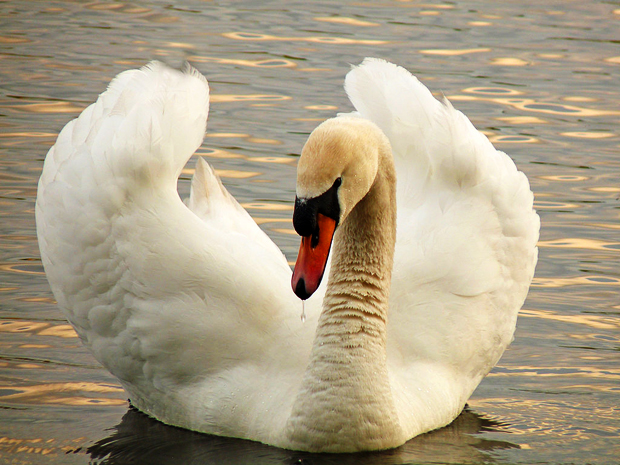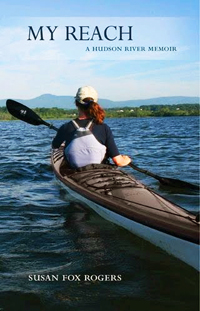
By nottsexminer (Mute SwanUploaded by Fæ) [CC-BY-SA-2.0], via Wikimedia Commons
Susan Fox Rogers is an author, educator, adventurer and environmentalist. This post appears on her online journal. More about Susan and her work at the conclusion.
This winter, the New York State Department of Environmental Conservation (DEC) announced its plan to eliminate the 2,200 Mute Swans living in the state by 2025.
I have a visceral reaction to any killing — spiders wander my house unharmed — but it’s not just because I’m a goofy animal lover that I don’t like this plan. Are we really smart enough to make a decision about the statewide extermination of a species of waterfowl?
Let’s talk about the reasons why the DEC has decided on this move — which has caused an outcry throughout the state, the country and even the world.
Swans are not native to New York State. There are a lot of species not native to the States. If we are going to eliminate non-native species, I suggest instead something abundant like the European Starling. It is estimated that the Mute Swan comprises only one half of one percent of the waterfowl in the state.
Swans eat the submerged aquatic vegetation that other waterfowl also eat. This is a circular argument that first presumes eradication of an introduced animal species has its own merit. Consider some of the reasoning. There are indeed many studies on submerged aquatic vegetation (SAV) that demonstrate is scarcer than it should be. But if SAV conservation is one reason for killing off the swans, won’t the SAV just become the food of the native birds when their populations increase? And who has studied those consequences? My fear is that in the absence of evidence that the Mute Swan’s existence has significant, ecosystem-wide, ecological consequences, this rash campaign will become just another layer of ecological engineering driven by human preference , with its own unintended consequences.
Let’s not first reach for a gun; let’s be more imaginative.
Swans are aggressive to other animals and humans. This is the most ridiculous reason. All animals can be aggressive. But we don’t expect birds to be aggressive because largely we stay away from their hidden nests. But Swans are big and beautiful and people do incredibly stupid things like take photographs of their infants walking toward a bird twice the size of the child. A public education program could help with this problem. Mute Swans are not sweet. They are not pets. They are enormous, aggressive birds that need space.
Swans are hazards to aviation. This is perhaps the top reason swans are to be eliminated but it suffers from much of the circular reasoning cited above. BASH (Bird Aircraft Strike Hazard) is a major expense for the airline industry. Note the language makes is sound as if birds collide with planes. “Planes hit birds all the time,” writes financial journalist Eric Uhlfelder in the New York Times. US Airways Flight 1549, which made its celebrated landing in the Hudson River, struck Canada Geese, and in the past 23 years collisions with birds have forced one plane a day to land prematurely. This number is extraordinary, and for the safety of all — birds and passengers — we should do something about it. But as with the SAV argument, where is the evidence that eradicating swans will reduce the number of large birds in the sky? When the niche they leave is filled with native species, what then? We can’t kill every large bird that flies (though we do kill off about 25,000 Canada geese a year). More inventive solutions must be found, such as mandatory airline investment in the continuing innovation of avian radar.
How about this: Let’s not first reach for a gun; let’s be more imaginative about how we can live together on this small planet. Let’s learn more. Let’s get smart before we get more stupid.
If you want to agitate: New York State Senate Bill S6589, introduced by Tony Avella calls for a two year moratorium on the mute swan slaughter until more evidence can be offered. Said Senator Avella, “I was horrified to learn that our state wildlife agency would make such an extreme, unfounded proposal.”
«« »»
 Susan Fox Rogers is Visiting Associate Professor of Writing at Bard College. She is the author of My Reach: A Hudson River Memoir, which Philip Roth called:
Susan Fox Rogers is Visiting Associate Professor of Writing at Bard College. She is the author of My Reach: A Hudson River Memoir, which Philip Roth called:
An elegantly written and beautiful book, dominated by powerful, antithetical emotions: grief over the loss of elderly parents and exhilaration with exploring a great American river. There is Huck Finn and his raft and the Mississippi—now there is Susan Fox Rogers and her kayak and the Hudson River to add to the American canon of glorious nature writing.
Susan is also the editor of twelve books, including Antarctica: Life on the Ice and Going Alone: Women’s Adventures in the Wild. She teaches writing at Bard College where there is standing-room-only for her courses.
You can read Susan’s online journal here.
Susan’s Facebook page is here.










Update! This morning (March 2) on NPR: DEC, after receiving over 15,000 letters and comments (here’s to having a voice!) has withdrawn their Mute Swan plan. For now. Onward, swans.